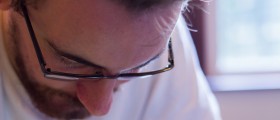
Do You Need Reading Glasses? How To Recognize Presbyopia And What To Do About It
Is everything nearby going just a bit blurry, and you're in your early forties? You probably need reading glasses. Find out what presbyopia is, and why getting a proper pair of prescription glasses is better than just heading to the nearest store.

A Beginners' Guide To Contact Lenses: Soft Lenses, Hard Lenses, Or Hybrid Lenses?
Are you considering contact lenses? Which so many types on the market, it can be hard to know which lenses to choose. Here's an overview of different lenses and their pros and cons.

What Your Doctor Probably Won't Tell You About Glaucoma
Experts estimate that half the people who have glaucoma don't know they have it--because they haven't had their eyes tested. If glaucoma is diagnosed in time, there is a lot you can do about it, but if it isn't, blindness is a real possiblity.
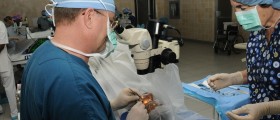
What Is It Like to Have Cataract Surgery?
Two weeks ago, I was legally blind. Today, I can see well enough to read, write, do household chores, watch a movie, cross the street without having to listen to traffic, and thread a needle without glasses. For me, cataract surgery made the difference.

Visual Program Improves Baseball Players' Game
Researchers at the University of California Riverside have found that a little time using a visual practice program can train the brain to see better. Other programs can improve vision even if you aren't a baseball player.
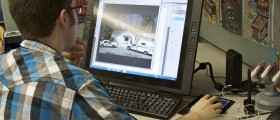
Modern Technology And Digital Eyestrain
Excessive use of electronic devices, particularly those with small or bright screens, is linked to problems with eyesight. Computer vision syndrome becomes increasingly common among both office workers and general population.

Eat Lots of Omega-3 Fatty Acids and You are Less Likely to Develop Age-Related Macular Degeneration
A recent study has concluded that consuming lots of omega-3 fatty acids can reduce the likelihood of developing age related macular degeneration (AMD), a leading cause of vision loss in people more than 60 years of age.
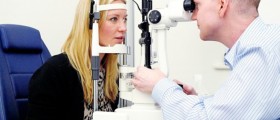
Older People (And Maybe Younger People, Too) Don't See As Well At Home As At The Clinic
Many people complain of eye problems their doctors miss during eye exams. A recent article in JAMA Ophthalmology explains the reasons why.
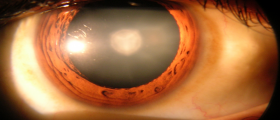
Cholesterol-Lowering Drugs Linked To Increased Risk Of Cataracts: Ten Things You Need To Know
Not just one but two recent medical studies involving thousands of people have found taking statin drugs (such as Crestor, Lipitor, Pravachol, and others) to lower LDL cholesterol increases the risk of cataracts. But there are things you can do about it.

